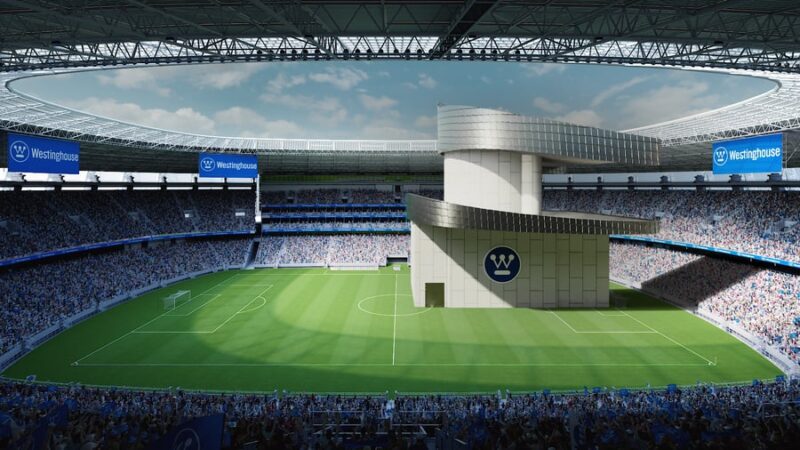
Cranberry Township-based Westinghouse Electric Company announced Thursday it had launched a “game-changing” nuclear technology advancement – a new small modular reactor.
The AP 300 reactor is a 300-MWe single-loop pressurized water reactor, the company said, based on the scaled design of its advanced AP1000 reactor. The AP300 has an ultra-compact footprint while utilizing technology identical to its larger cousin, including major equipment, structural components, passive safety, proven fuel, and I&C systems. Officials said the smaller model will take lessons learned from the larger model and combine them with proven procedures and best practices the company has learned in its 18 years of safe reactor operations.
“The AP300 is the only small modular reactor offering available that is based on deployed, operating and advanced reactor technology,” said Patrick Fragman, President and CEO of Westinghouse. “The launch of the AP300 SMR rounds out the Westinghouse portfolio of reactor technology, allowing us to deliver on the full needs of our customers globally, with a clear line of sight on schedule of delivery and economics.”
Heading up the team developing the AP300 will be Dr. Rita Baranwal, currently Westinghouse’s Chief Technology Officer. The company name Baranwal is the senior vice president in the Energy Systems business unit. She will lead the AP300 small modular reactor team. Baranwal previously served at the U.S. Department of Energy as the Assistant Secretary of Nuclear Energy and has decades of experience in the field of nuclear energy, including time as the director of the Gateway for Accelerated Innovation In Nuclear (GAIN) initiative at Idaho National Lab.
The AP300 uses Westinghouse’s Gen III+ technology. The system has achieved regulatory approval in the United States, Great Britain, and China, as well as compliance with European Utility Requirements (EUR) standards for nuclear power plants. The company said design certification is expected by 2027, with construction on the first unit taking place by the end of the decade.